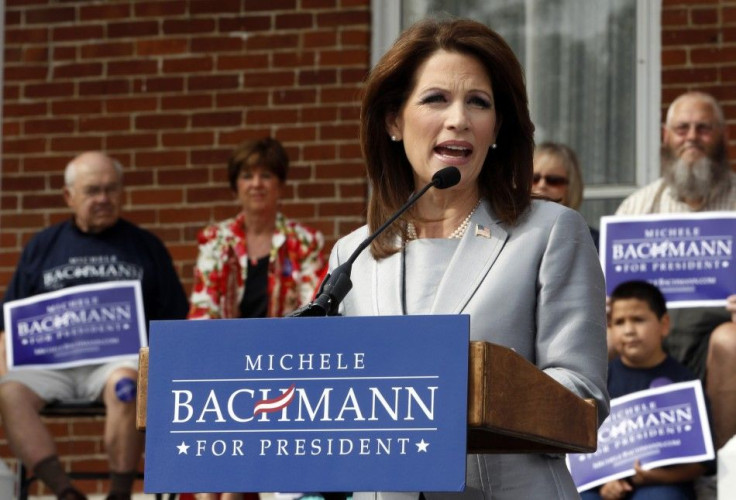Analysis: Republican leaders heed Tea Party but risk backlash

Emboldened by concessions wrung from their own leadership and President Barack Obama during the debt limit fight, Tea Party-affiliated lawmakers will likely remain a driving force in the Republican Party -- and possibly induce gridlock until the 2012 elections.
The several dozen fiscally conservative, small-government members in the House of Representatives played a significant role in forcing John Boehner, the Republican House Speaker, to abandon efforts to forge a bipartisan "grand bargain" debt limit deal with Obama because it contained revenue increases -- and their clout will continue, analysts say.
The struggle to avert a catastrophic default ended August 2 when a deal to raise the debt limit was finally struck and signed into law by Obama.
The fight over the debt ceiling exposed a fundamental rift inside the Republican Party between the Tea Party movement newcomers, many of whom believed a debt default was actually needed to get America's spending under control, and traditionalists such as Boehner who said a deal had to be struck to increase the United States' borrowing authority.
A wave of Tea Party-affiliated members was elected to Congress in the November 2010 mid-term elections, propelled by voters furious about a bad economy and government spending.
"This wave hasn't crested yet," said Larry Sabato, director of the University of Virginia's Center for Politics.
"The momentum among voters generally is completely about cutting spending. There is this fissure inside the Republican Party -- between the Tea Party absolutionists and the strongly conservative traditionalists -- but they all agree that the debt has to be taken care of."
'NO MODERATE WING'
Sabato predicted political gridlock and battles until the November 2012 presidential elections.
"The right is energized. They can rally against Obama, healthcare, spending, unemployment, the debt. There is no moderate wing of the Republican Party. The party is very conservative, and is basically in agreement.
"It will remain very conservative and intransigent," Sabato said. "What could possibly change them? Why would they cooperate? What's the incentive?"
Stu Rothenberg, an independent political analyst, said Boehner and Republicans affiliated with the Tea Party movement will be able to coexist in the short term.
"John Boehner used to be one of the most conservative members. He came to Washington as a bomb thrower, he wanted to cut government, he wanted to reform things. Now he is the mainstream of the party. That just shows you where the party has moved to."
Boehner will continue to be forced to consider Tea Party Republican's views, Rothenberg said, "because he will need their help along the way. The Tea Party will be a significant force throughout the next year and a half."
But he predicted serious problems if the Tea Party Republicans gain more clout.
"If they are ever in charge -- if the Republicans win the White House or control the White House, Senate and House, you will see civil war break out," Rothenberg said. "The Tea Party will think okay, now we can run the place. They will expect everything they want to be passed. It will be a huge problem for whoever the president is."
When running for office last year, Tea Party-affiliated candidates advocated cutting government spending, lowering taxes, curbing government regulation of private business, phasing out the Social Security retirement program, dismantling the Education Department and repealing Obama's healthcare reform law.
The Tea Party is a loosely organized conservative movement that gets its name from the 1773 Boston Tea Party anti-tax protest.
POTENTIAL BACKLASH
Others predict a voter backlash against fiscally conservative Republicans in next year's elections, accusing them of bringing the country to the brink of default.
"The electorate will be very different next year because it is a presidential election year," said Tad Devine, a Democratic strategist.
He noted that in 2010, independent voters wanted to show they were not happy with the direction of the country and so supported Tea Party candidates -- who once elected may have gone too far.
"But this was not the change they wanted," he said. "They have watched what just happened in Washington, that the country was brought to the edge of a cliff with consequences that would have had immediate effects on their lives, and they are astounded."
"This time round, these Republicans actually have to run on their record. And independent voters will be repulsed by their policy prescriptions and actions."
Steven Hess, a veteran Republican staffer and a political analyst in the Brookings Institution think tank, said Republicans, who have a 49-seat majority in the House, could lose control of the chamber next year.
"You will have exposed candidates and an enlarged electorate," Hess said. "The Tea Party is a relatively fragile movement. People have already lost interest in it and are getting irritated with it."
© Copyright Thomson Reuters 2024. All rights reserved.




















